This meeting invited a host of eminent experts and scholars to deliver speeches. Shanshan Zhang, vice director of Assessment Office, National Center for School Curriculum Development and Assessment, Ministry of Education, Tiyu Fan, vice director of Institutional Cooperation Office, Children & Youth Science Center, China Association for Science and Technology and Meijie Tang, director of Rhodes Scholarships’ China Program made speeches on “New Curriculum Reform and Examination Assessment Reform”, “Study of Scientific and Technological Innovation of Middle and High School Students” and “Evolution of Scientific Innovation in International Education” respectively.
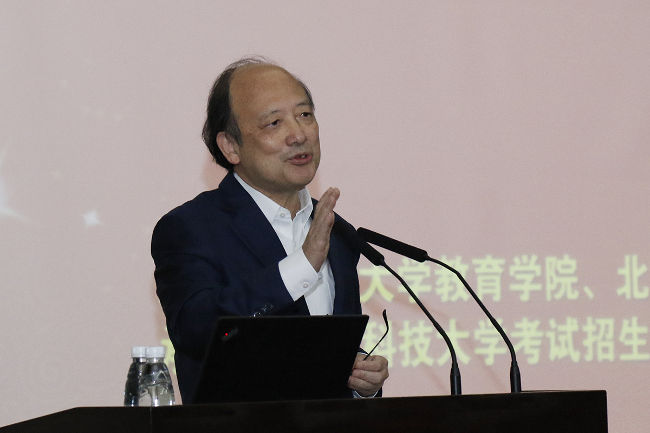
On December 17, Shiyi Chen attended and spoke at the meeting. On behalf of the university he welcomed guests and expressed sincere gratitude to them for their solicitude and support for the development of SUSTech. He pointed out that the university was established as a response to the ‘Qian Xuesen question’, namely ‘why does China produce so many clever people but so few geniuses.’ To cultivate innovative elites for the country, SUSTech has adopted a student-centered and personalized education model. He believed that different universities should develop their own brand of advanced pre-university courses, which can not only provide personalized education for students, but also help universities discover students with innovation potential. SUSTech will also select top professors to open advanced pre-university courses in the style of the SUSTech. He asked fellow teachers at SUSTech to keep their beginner’s mindset, carry forward the mission, spare no efforts to facilitate students’ growth into talents needed for the construction of the country and make new contributions for the new times, and invited attending high school principals and teachers to recommend more brilliant students to the university.
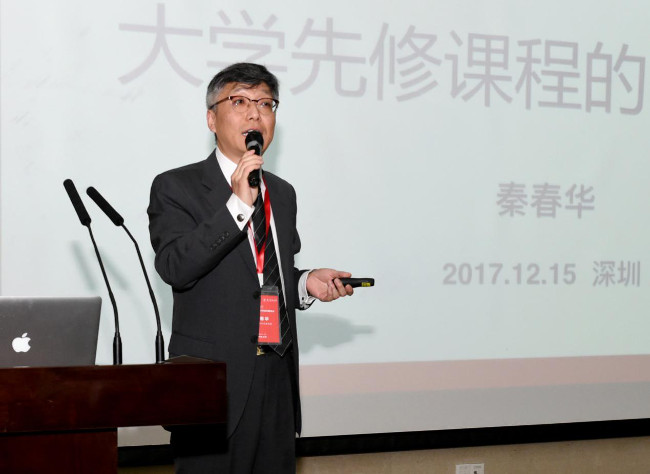
At the opening ceremony and thematic report session on December 15, Chunhua Qin thanked SUSTech for the execution of the event. In his speech titled ‘The Chinese Path of Advanced Pre-University Courses’, Qin shared his thoughts and understanding of this task. In terms of the challenges and problems Chinese education and examination system are now facing, he explained the necessity and importance of developing advanced pre-university courses to instill the spirit of science in students, stimulate students’ motivation and potential to learn, build a connection between high schools and universities, and provide new criteria against which prestigious universities select young talents.
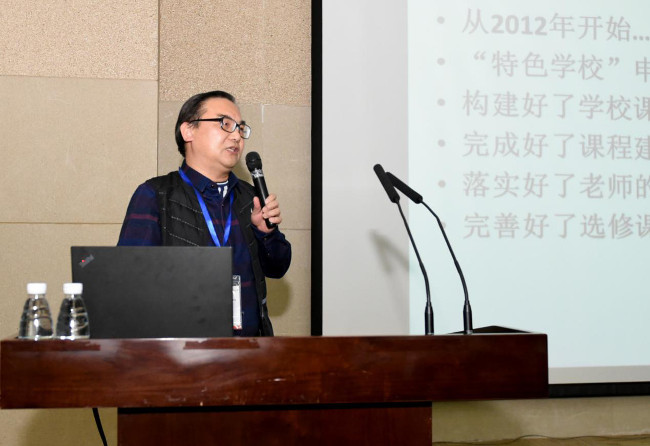
Dingying Feng, vice principal of Hangzhou Xuejun High School delivered the speech ‘Hello! New Scheme of College Entrance Examination’, and gave a detailed introduction to the school’s efforts to create a high school with characteristics and deepen curriculum reform. He summarized and reflected on the reform results and briefly introduced and interpreted the new college entrance examination policy of Zhejiang Province in 2017.
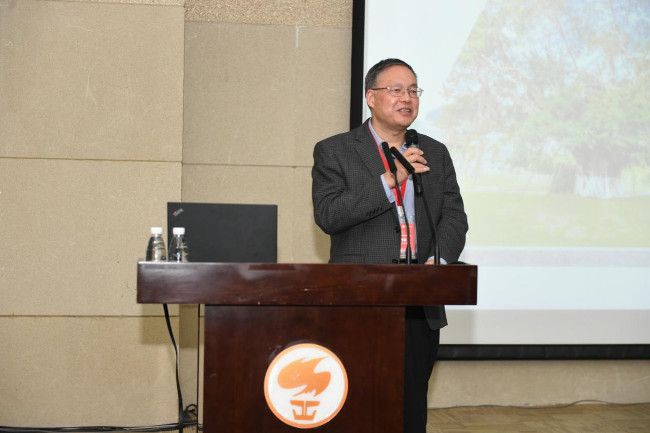
With the report ‘SUSTech’s Educational Innovation’, Chuanyue Wu gave an overview of the university with an emphasis on its talent cultivation model and educational philosophy. He explained that there is much in common between the curriculum of SUSTech and that of the advanced pre-university courses: both strive to cultivate individualistic and elitist talents and correct students’ tendency to conform to standards of exams and their lack of motivation to learn and create, so as to cultivate more competent talents with motivation and abilities for lifelong learning.
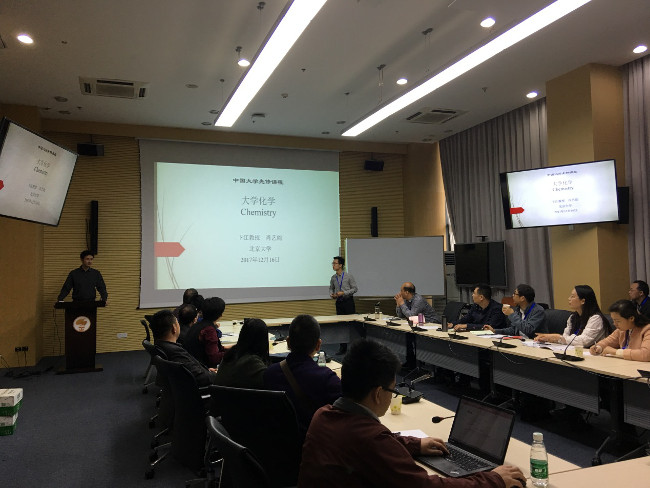
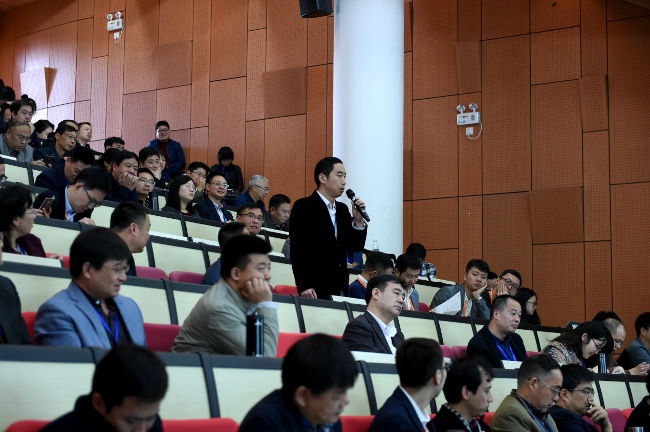
This annual meeting is recognized for its effective schedule and a rich diversity of programs, including forums themed on principals and presidents, disciplines and innovation, as well as exchanges on teaching specific disciplines among teachers of key schools and between universities and high schools. Leaders and teachers from prestigious universities and high schools all over the country convened to listen to reports from experts and scholars, share experience and tips of teaching specific disciplines to improve their pedagogical expertise. Guests also took the opportunity to take the campus tour and have informal discussions with students of SUSTech. With a deeper understanding of the university they spoke highly of its educational philosophy and achievements.
The Advanced Pre-University Courses (abbreviated as AC) are advanced academic programs sponsored by the Institute of Examination Research of Peking University and opened at selected high schools in China in the form of optional courses. They include calculus, mechanics, electromagnetism, college chemistry, ancient Chinese culture, general history of China (pre-modern China), introduction to earth science, introduction to calculation, fundamentals of electric circuits, covering sciences, engineering, humanities and social sciences. At present there are 360 high schools who participate in the pilot programs. Over ten thousand top high school students have refined their thought and broadened their perspective through AC.
As pre-university courses, AC connects high school education and college education and serves as a natural extension of the high school curriculum. Students are exposed to college courses that most interest them in advance and become more prepared for their academic pursuits in the future; those who are eager to learn more can start college courses earlier and even lay a foundation for making informed decisions about choosing college majors; through learning what interest them in a more extensive and profound way, students can be more confident in their ability to meet challenges, develop patterns of thinking and abilities to explore the unknown; by selecting AC students also demonstrate their readiness to receive and complete college education and their passion for meeting challenges, and fully display their academic accomplishments in certain fields, so that universities can assess them in a more comprehensive manner.
Proofread By
Photo ByOffice of Admissions